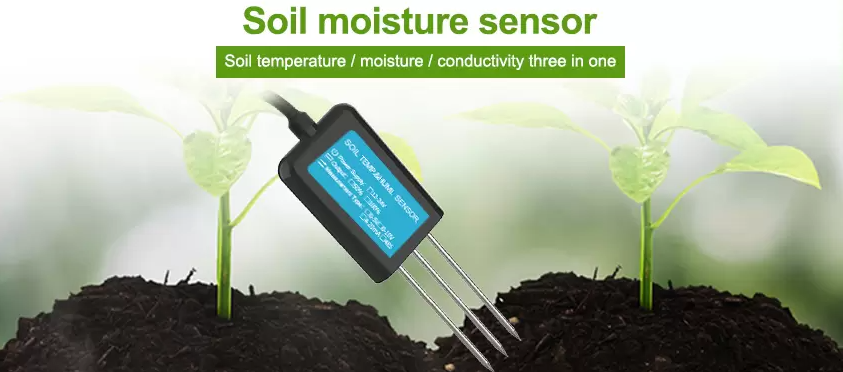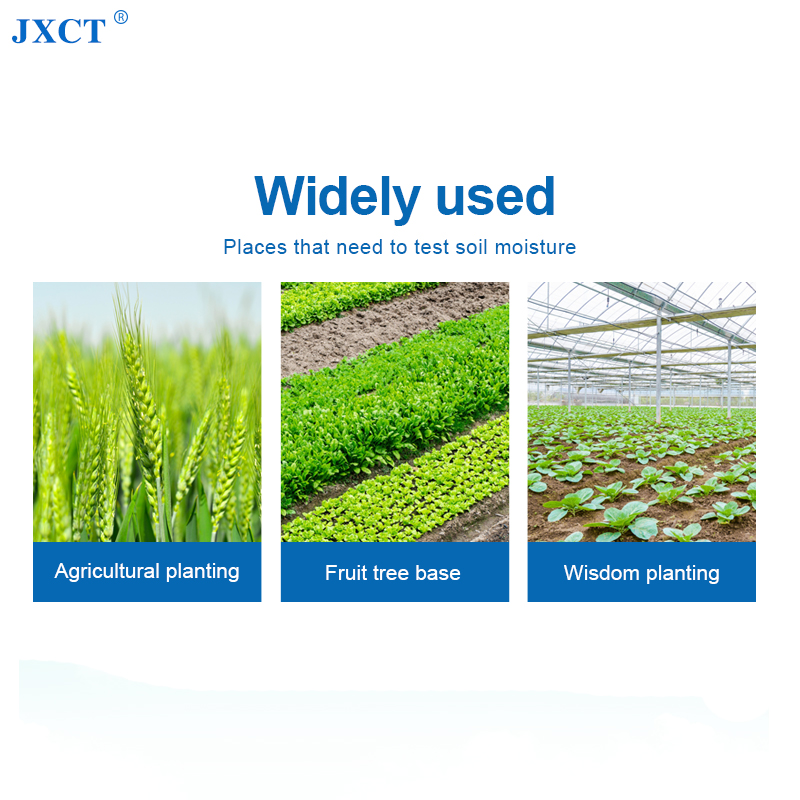Soil moisture sensor for plants can maintain the appropriate moisture level in the soil conducive to the healthy growth of plants. Too much or too little watering can lead to growth, root rot and death. To help gardeners, farmers, and horticulturists achieve optimal moisture levels, soil moisture sensors have emerged, and the article delves into the features, benefits, and applications of soil moisture sensors.

Understanding Soil Moisture Sensor For Plant:
Soil moisture sensors are devices that measure the moisture content in the soil. They provide real-time data on soil moisture levels, allowing users decisions regarding watering schedules and irrigation.
- Features Functionality: a. Sensor Probes include one multiple sensor probes that are inserted into the These probesive, capacitiveometry (TDR) to measure soil moisture content accurately Alerts: Soil moisture sensors come with user-friendly displays that moisture readings in real-time. Some sensors also have built-in alarms when the levels fall below a certain threshold.
c. Wireless: Many modern soil moisture sensors are equipped with wireless connectivity, allowing users to monitor soil moisture levels remotely using smartphones or computers This feature proves invaluable for large-scale farming operations or when monitoring multiple plant beds.
d. Data Logging: Advanced soil moisture sensors offer data logging, enabling users to track moisture trends over time. This data can be for systems, and optimizing plant care strategies.
Benefits of Soil Moisture Sensors for plants:
a. Water Conservation: By providing real-time data on soil moisture levels, sensors help users avoid overwatering or underwatering. This leads to significant water savings,-scale are scarce.
b. Enhanced Plant Health: proper soil moisture levels health. Soil stress due to under, allowing plants to other.
c. Time and Cost Savings: Soil moisture sensors for plants eliminate the need for guesswork when it comes to watering plants users can save time and resources that would have been spent on manual monitoring or unnecessary watering.
d. Predictive Analytics: With help historic moisture data collected by soil moisture users can identify patterns and predict moisture needs in advance This allows for more proactive watering strategies and efficient allocation.
In Plant Care: a. Home Gardening:
Soil are ideal for home gardeners who want to ensure proper levels for indoor and outdoor plants. These sensors can used in potted plants, vegetable gardens, lawns and flowerbeds.
b. Agriculture and Farming: Large farmers and agricultural operations benefit sensors to improve water management techniques and optimize irrigation practices. This leads to increased crop yields, reduced water usage, and cost savings.

c. Landscaping and Golf Courses: In professional landscaping and golf course maintenance, soil sensors play a vital role in maintaining lush and healthy lawns while conserving waterConclusion: Soil moisture sensors have revolutionized plant care by providing real-time data on soil moisture levels. With their accurate measurements, wireless connectivity, and data logging features, these sensors contribute to water conservation, enhance plant health, and save time and money. Whether used in home gardening, agriculture, or landscaping, soil moisture sensors are indispensable tools for maintaining optimal moisture levels in the soil, ensuring healthy and vibrant plant growth.
As technology continues to advance, we can expect further improvements in the performance and functionality of soil moisture sensors, making plant care even more efficient and sustainable.